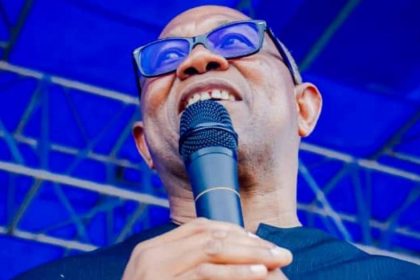Co2carboncredit Technology, in partnership with the Federal University of Agriculture, Abeokuta (FUNAAB), has launched Nigeria’s first large-scale voluntary carbon market project focused on forest carbon credit generation.
The initiative began operations on July 31, 2025, aiming to conserve and digitally verify three million Indigenous Fruit Trees (IFTs) with the objective of generating 300,000 tonnes of forest carbon credits.
Stanley Adimabua, team lead at Co2carboncredit Technology, said, “We’ve just generated Nigeria’s first batch of 1,000 tonnes premium forest carbon credits tradable assets so far, under our IFTs Forest Carbon Program. It might not sound like much now, but it’s the beginning of something that’s never been done at this scale in this country.”
These carbon credits will be registered on Co2carboncredit’s proprietary digital tree numbering and carbon verification registry and are intended for trading on a forthcoming carbon exchange platform.
Field operations started on FUNAAB’s 10,000-hectare campus, where over 1,000 students have engaged in tree inventory activities. Several forestry graduates have been employed through Co2carboncredit’s graduate trainee program as tree inventory foresters. The university provides technical expertise, access to indigenous fruit tree species, and space for scaling the forest carbon development.
Adimabua explained, “We want to eliminate the guesswork. Our platform creates traceable, verifiable forest carbon credits that exceed international benchmarks. This is how Nigeria gets to be taken seriously in the African carbon markets space, of which these carbon credits are a tradable asset that would empower and help companies meet their net-zero target sustainability.”
He noted that each tonne of verified carbon credit is valued at approximately $20 under the Africa Carbon Markets Initiative (ACMI), a pricing benchmark projected to generate significant revenue over time.
He added, “That income will not be limited to corporate entities or regulators. We’re training young people and proving that forest carbon credits can be done here, by Nigerians, with Nigerian expertise.”
The project has received endorsement from the World Intellectual Property Organisation (WIPO), Nigeria Office, under its IP for Green Innovation program. Though currently focused in Ogun State, the initiative plans to expand to other Nigerian universities, agroforestry plantations, and rural communities across West Africa before 2030.
Adimabua concluded, “We’re building the model here and proving it works. But this is a regional opportunity. Every country in West Africa has underutilised forest assets. With the right systems, they can all participate in the carbon economy.”






